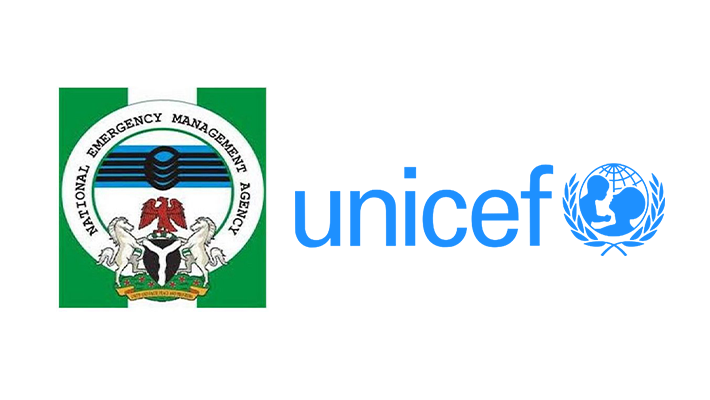UNICEF supports NEMA on preparation for disaster management

By George George Idowu
The National Emergency Management Agency (NEMA), in partnership with UNICEF, has held a workshop aimed at enhancing Nigeria’s nationwide disaster risk analysis.
The two-day event, in Jos, Plateau State, came to a close on Thursday where stakeholders from government agencies, ministries, SEMAs, and non-governmental organizations came together to strategize on how to bolster the nation’s disaster readiness and response capabilities.
Representatives from various sectors joined forces to refine and expand the existing risk analysis framework, with a particular emphasis on addressing vulnerabilities among different populations.
The Director General of NEMA, Hajiya Zubaida Umaru, stressed the significance of this initiative in her opening remarks.
Assistant Director of Planning Research and Forecasting at NEMA HQ, Fred Anusim, who represented the DG emphasized that updating the risk analysis is not merely procedural but a critical step towards safeguarding communities and securing Nigeria’s future.
Throughout the workshop, participants engaged in comprehensive sessions that examined recent disaster trends, assessed current mitigation strategies, and explored innovative approaches to risk management.
Topics covered included hazard identification, risk analysis, hazard mapping, and community vulnerability and coping capacities, all contributing to Nigeria’s national risk landscape.
The workshop incorporated practical exercises and group discussions, enabling stakeholders to apply new tools and methodologies in risk assessment.
Participants expressed satisfaction with the workshop, commending NEMA and UNICEF for organizing such a valuable and insightful event.
Subsequently, recommendations from the workshop sessions will be compiled into a comprehensive report to guide the next steps in updating the national risk analysis.
This collaborative effort underscores the commitment to enhancing Nigeria’s disaster preparedness and ensuring the safety and resilience of its communities.
